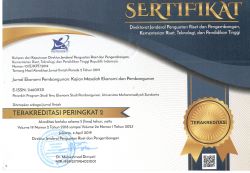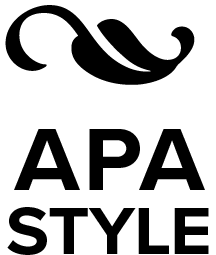MODEL CORPORATE SOCIAL RESPONSIBILITY DALAM PROGRAM PEMBERDAYAAN PETANI HORTIKULTURA
Etty Soesilowati(1*), Dyah Rini Indriyanti(2), Widiyanto Widiyanto(3)(1) Fakultas Ekonomi Universitas Negeri Semarang Kampus Sekaran Gunungpati Semarang 50229 Jawa Tengah Telepon 024-70778922
(2) Fakultas Ekonomi Universitas Negeri Semarang Kampus Sekaran Gunungpati Semarang 50229 Jawa Tengah Telepon 024-70778922
(3) Fakultas Ekonomi Universitas Negeri Semarang Kampus Sekaran Gunungpati Semarang 50229 Jawa Tengah Telepon 024-70778922
(*) Corresponding Author
Abstract
This research aimed to analyze the model of empowering dry land farmers in Central Java, the actors involved, the constraints faced, the impact and level of effectiveness. The study used two approaches: qualitative and quantitative approaches. In the qualitative approach, data were analyzed by using an interactive model. While the quantitative approach carried out by using the cost and benefit analysis. In the qualitative approach, data were analyzed by using an interactive model. While the quantitative approach conducted by using the cost and benefit analysis. The results showed that CSR was done through the assistance of technical consultants by applying concept "one product one village"; institutions involved include SOEs (State-Owned Enterprises), the Provincial Government, Local Government, Village Government, Private Companies and Community. The external constraints that happen came from cultural differences of government and private organizations as well as the existence of unpredictable extreme weather. Meanwhile the internal constraints derived from the knowledge level of farmers; ROI calculation result showed that the planting of horticulture commodities was profitable.
Keywords
corporate social responsibility; hortikultura farmer empowerment; dry land farmer; social preparing
Full Text:
PDFArticle Metrics
Abstract view(s): 1859 time(s)PDF: 1583 time(s)
Refbacks
- There are currently no refbacks.















